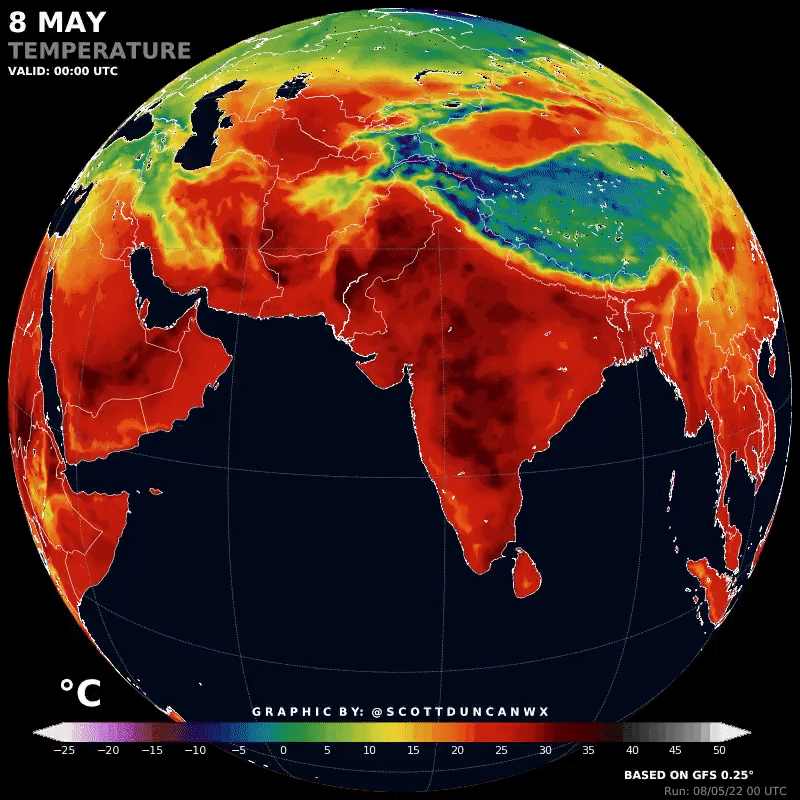In sizzling South Asia, birds are falling from the sky
Climate change-induced heatwave has temperatures halfway to boiling.
(A native of England, Matthew Diebel is a veteran journalist who has worked at NBC News, Time, USA Today and News Corp., among other organizations. Having spent his childhood next to one of the world's fastest bodies of water, he is particularly interested in tidal energy.)
How hot is it? So hot that birds are falling out of the sky.
That’s the case in India and Pakistan, which have been experiencing a weeks-long heatwave — blamed on climate change — that has seen temperatures rise to the point where they are halfway to boiling (50°C., 122°F.).
The Charitable Bird Hospital in the Indian city of Gurgaon said it had treated a record number of birds for conditions such as fever, dehydration and heat stroke, reports Vice. The facility’s Dr. Rajkumar Rajput, a veterinarian, said his staff had admitted 80 birds with heat stroke since April. A majority of the birds are pigeons, some kept by people as pets, but mostly wild animals brought in after being found by concerned citizens.
“The birds keep our natural habitats like jungles in control,” Rajput said. “Their loss will impact the growth of our natural green cover.”
Meanwhile, doctors in an animal hospital managed by the non-profit Jivdaya Charitable Trust in western India’s Ahmedabad said they have treated thousands of birds in the past few weeks, according to Reuters. Other animals, particularly cats, have also been experiencing severe dehydration.
Another part of the animal kingdom — humans — have also been suffering. The sweltering weather has killed at least 25 people in India and 65 people in Pakistan, according to numbers cited by Vox, though the true number of casualties is likely much higher.
Meanwhile, the heatwave is creating a vicious cycle. To escape the heat, residents are increasingly turning to air conditioning, which means more electricity is consumed, power that in India comes about 75% from fossil fuels, particularly massively-polluting coal. The figures in Pakistan are not much better
Another alarming factor: the early arrival of the heat, with recent weather mirroring what happened last year, when temperatures spiked in the months of March and April. “It’s been two years where we are witnessing almost springless seasons,” said Fahad Saeed, a scientist at Climate Analytics, an institute based in Islamabad, the capital of Pakistan.
People are tweeting about it. The birds certainly are.


